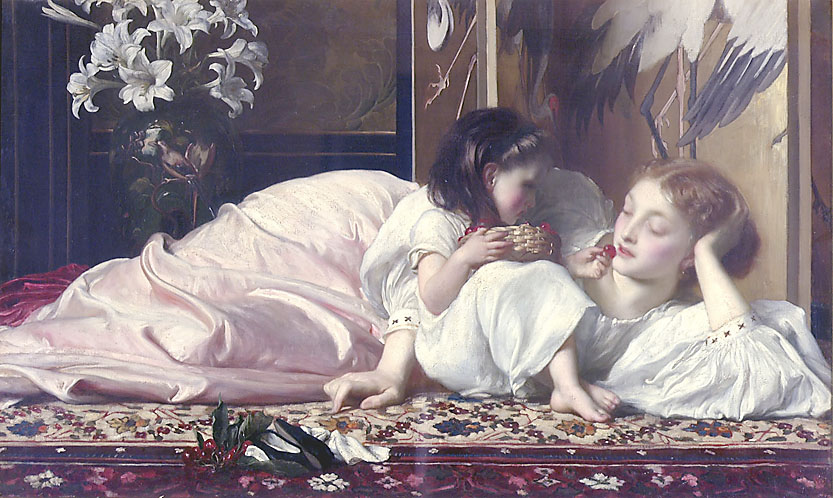 Oscar Wilde (1854-1900) was born in Dublin, the capital of the Republic of Ireland, in 1854. At that time the whole of Ireland was part of the British Empire. His father was a physician and his mother was an appreciated Irish poetess and writer under whose influience the artistic tastes of Oscar Wilde no doubt developed.
Oscar Wilde (1854-1900) was born in Dublin, the capital of the Republic of Ireland, in 1854. At that time the whole of Ireland was part of the British Empire. His father was a physician and his mother was an appreciated Irish poetess and writer under whose influience the artistic tastes of Oscar Wilde no doubt developed.
He was educated at Trinity College, Dublin and at Magdalen College, Oxford.
After finishing his studies, he travelled in France and Germany. He learned French so well that he was able to write his play Salomé in that language and to receive unanimous praise for the beautiful French, in which he wrote it.
In 1895 he was involved in a great scandal in the aristocratic world and was accused of immorality. He was sentenced to two years imprisonment and was sent to Reading jail.
Wilde never admited that he was guilty and always said that he was a victim of intrigues of his enemies.
His moral sufferings in prison inspired him to write his famous poem The Ballad of Reading Gaol, a masterpiece of verse, expressing profound humane feelings.
After being released from prison, he immediately left England and went to France where he died only three years later, in 1900.
Oscar Wilde made himself known first as a poet, by publishing poems in various periodicals and magazines. In 1881 he published his volume of Poems which enjoyed an enormous succes, although today his poems are less highly regarded.
He made a great impression on the British public with something quite new in English literature when he published his collection of graceful fairy stories The Happy Prince and Other Tales (1888) which was followed by a second similar collecton A House of Pomegranates (1891). In these stories he expresses his humanitarian sentiments and sympathy with the suffering of the poor while the stories abound in witty satiric allusions to contemporary topics.
In 1891 Wilde also published The Picture of Dorian Gray, a novel which is considered to be Wilde’s most important work as in it he expresses his ideas on art which should develop, as he sees it, only under the guiding principle of “art for art’s sake” or aesthetic isolation.

Oscar Wilde was carried to the zenith of his career by a series of successful comedies which were produced betwen 1892 and 1895: Lady Windermere’s Fan, A Woman of No Importance, The Ideal Husband and The Importance of Being Earnest. The influience of the Norwegian plawright Ibsen is felt to some extent in that each of the plays contains a “problem” which the author brings before us on the stage. However, this is very timidly done and Wilde’s criticism of the world in which he lived is not boldly enough stated, although the aristocratic world to which his characters belong is presented in a most unfavourable light.
Oscar Wilde remains in the history of English literature as one of the chief representatives of Aestheticism or the Aesthetic Movement which belived in art as a substitute for life and which flourished in England in the last decade of the 19th century.
However, the characters in his stories do not struggle in the world but that of goodness and equity. On the other hand, humane feelings are not to be found among those at the top of social scale, but only among the humble and the poor or even outside humanity (a statue, a swallow etc.)
The Happy Prince is a statue which sees from the pedestal on it is placed the sad and miserable life of the poor of the town over which the Happy Prince ruled when he was alive. A little swallow which had remained behind, when its companions flew to Egypt in autumn, consented to become the statue’s messenger and help the suffering poor by bringing them the precious stones which were the statue’s eyes, the ruby encrusted on its sword-hilt, and the gold leaves with which it was covered. The swallow became so attached to the statue, when it became blind and bare, that it could not leave it and go to Egypt any more although it was winter. In the end it died of cold.
Both the Happy Prince and the swallow are generous and willingly sacrifice themselves for those who suffer though the latter never know who saves them and what is the price their benefactors have to pay in order to save them.
Oscar Wilde is in the first place a playwright and story-teller. He was also a poet very much appreciated in his time.
His plays, which contain elements from Victorian farce and melodrama, are not an expression of these views on art and life which he proclaimed in his symbolical novel The Picture of Dorian Gray or in his impressive fairy tales.
However, they make a strong impression on the spectator owing to the studied wit of the dialogue all throughout the plays, which turns them into pure style and a world in wich action exists only to make possible an extremly witty conversation.

